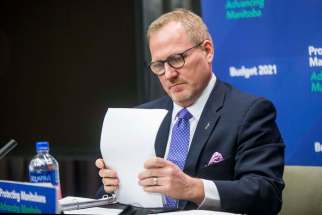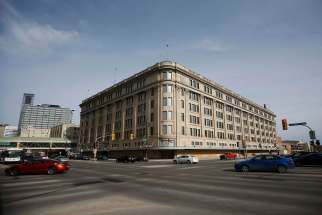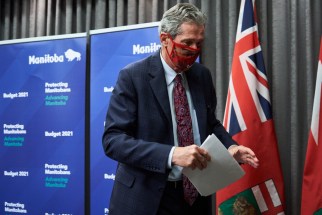An unwanted legacy: why Pallister’s tax cuts are a mistake
Read this article for free:
or
Already have an account? Log in here »
To continue reading, please subscribe:
Monthly Digital Subscription
$0 for the first 4 weeks*
- Enjoy unlimited reading on winnipegfreepress.com
- Read the E-Edition, our digital replica newspaper
- Access News Break, our award-winning app
- Play interactive puzzles
*No charge for 4 weeks then price increases to the regular rate of $19.00 plus GST every four weeks. Offer available to new and qualified returning subscribers only. Cancel any time.
Monthly Digital Subscription
$4.75/week*
- Enjoy unlimited reading on winnipegfreepress.com
- Read the E-Edition, our digital replica newspaper
- Access News Break, our award-winning app
- Play interactive puzzles
*Billed as $19 plus GST every four weeks. Cancel any time.
To continue reading, please subscribe:
Add Free Press access to your Brandon Sun subscription for only an additional
$1 for the first 4 weeks*
*Your next subscription payment will increase by $1.00 and you will be charged $16.99 plus GST for four weeks. After four weeks, your payment will increase to $23.99 plus GST every four weeks.
Read unlimited articles for free today:
or
Already have an account? Log in here »
Hey there, time traveller!
This article was published 07/04/2021 (1708 days ago), so information in it may no longer be current.
Premier Brian Pallister’s decision to slash education property taxes in Wednesday’s budget can be explained in two words: legacy building.
The embattled premier, whose approval rating is at an all-time low, is looking for anything to shore up support as he prepares to announce his retirement, likely by the end of the year. He appears to believe cutting taxes when the government just posted a $2.08-billion deficit will make him more popular. It won’t.
Manitoba’s Progressive Conservative party pledged during the 2019 election to phase out education property taxes over 10 years. It was a reasonable, doable pledge that would gradually shift education funding to general revenues, where it belongs. It had to be phased out over time, the Tories rightly argued, because the province couldn’t absorb the revenue loss all at once. That’s why the phase-out wouldn’t begin until the last two years of the current mandate (once the books were almost balanced), the PC party pledged at the time.
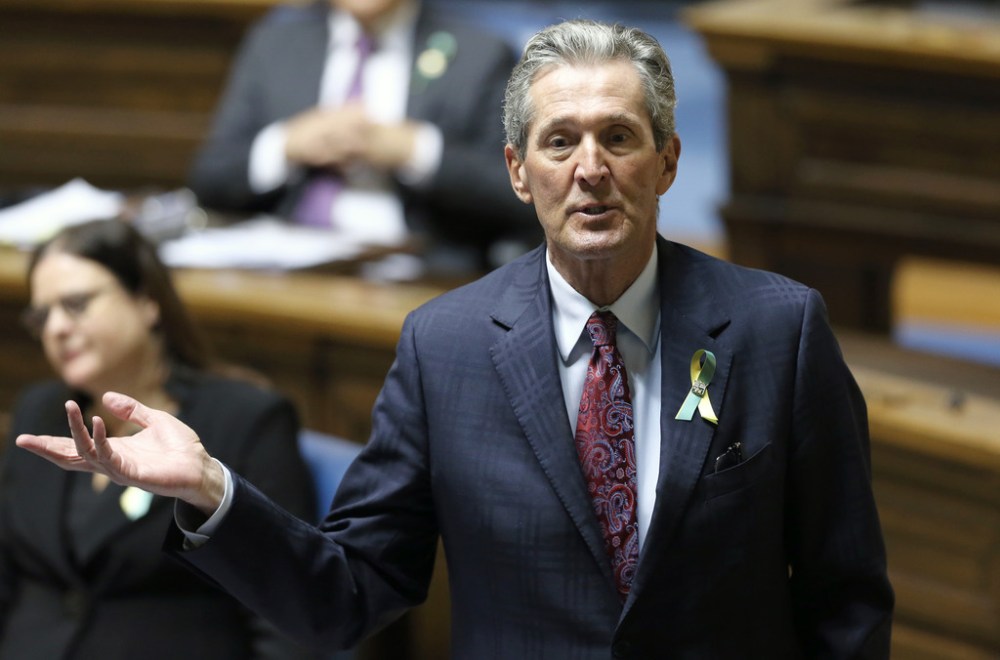
It was a sensible election promise.
Fast forward a year and a half and Manitoba is in the throes of a pandemic. It’s recovering from the worst recession since the Great Depression; the province just posted its highest deficit ever.
The government has no money for tax cuts. It’s projecting a $1.6-billion deficit this year. The province plans to borrow $5.7 billion (almost half of which is to refinance existing debt). The government’s net debt is projected to hit a record $30 billion in 2021-22; its debt-to-GDP ratio is approaching 40 per cent (also a new high).
The Pallister government can barely fund its pandemic relief efforts and its vaccine rollout, yet it’s going to borrow money to expedite a tax break for property owners.
Pallister says instead of phasing out education property taxes over 10 years, he’s going to cut them by 50 per cent over the next two years. Government will have to borrow $302 million a year to pay for it.
It makes no sense economically. Fiscally, it’s irresponsible. The government should balance its books before cutting taxes. Interest rates may be low today to finance billions in new borrowing, but that won’t last. Eventually rates will rise and taxpayers will be stuck with higher debt-financing charges when government refinances short- and medium-term debt.
Pallister doesn’t care about that (he won’t be around when rates go up). The only thing he’s focused on is trying to boost his approval rating before he resigns. He’s hoping a successful vaccine rollout will help him (which is not going well). And he’s banking on a deep property tax cut to help turn things around.
It’s unlikely to have the desired effect. Outside of Pallister’s Tory base (even that’s waning these days), it’s unlikely many Manitobans will see his decision to borrow money to finance a 50 per cent property tax cut as a prudent move.
What most Manitobans likely want right now is steady leadership during a time of crisis; someone who can steer the province through tough times, including supporting businesses and not-for-profits forced to close (or curtail operations) during the pandemic.
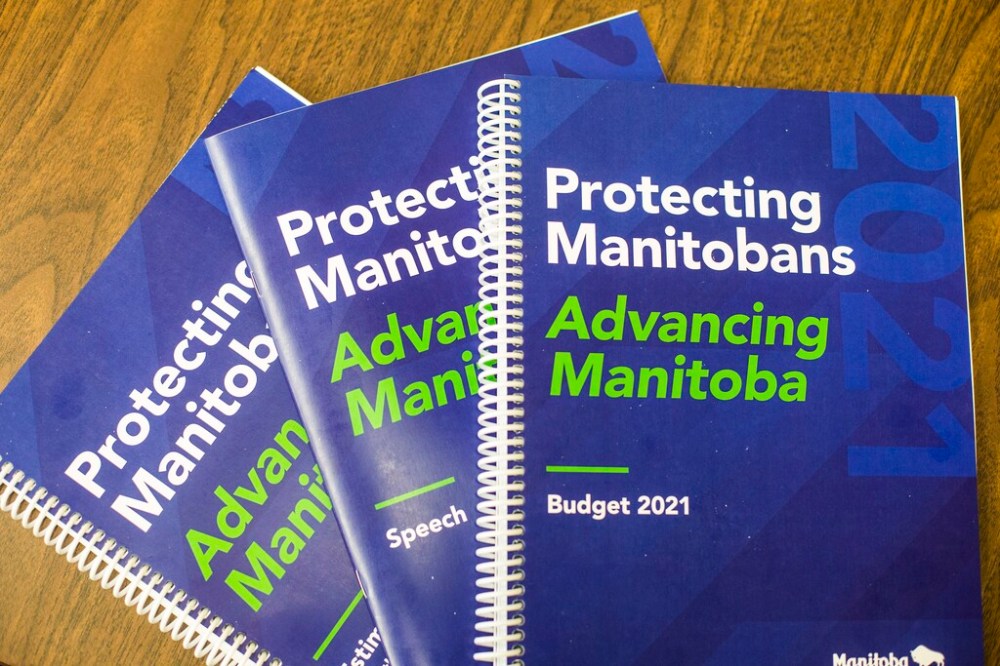
Manitobans are not seeing that from Pallister, which is why his numbers are so low. They’re seeing incompetence.
Cutting property taxes won’t change that. Many people, including fiscal conservatives, would likely prefer government target that money to support businesses and individuals who are on the brink of bankruptcy because of the pandemic.
Fiscal conservatism is about making smart decisions with money; living within one’s means, running government efficiently and borrowing only when necessary.
Borrowing money to finance tax cuts, in an attempt to prop up an unpopular premier’s image before he retires, is not an example of sound fiscal conservatism. It’s crass politics; it shows a lack of respect for taxpayers, including future generations who will have to repay the hundreds of millions Pallister is borrowing today.
Pallister’s legacy will be worse for it.
tom.brodbeck@freepress.mb.ca

Tom has been covering Manitoba politics since the early 1990s and joined the Winnipeg Free Press news team in 2019.
Our newsroom depends on a growing audience of readers to power our journalism. If you are not a paid reader, please consider becoming a subscriber.
Our newsroom depends on its audience of readers to power our journalism. Thank you for your support.

